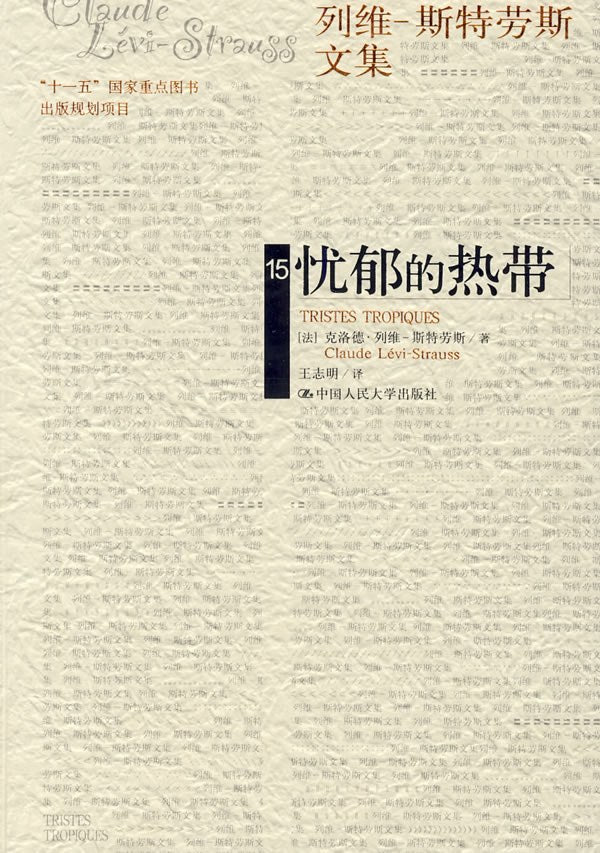WULOLIFE
《忧郁的热带》作者: [法] 克洛德·列维-斯特劳斯 出版社: 中国人民大学出版社 丛书:列维·斯特劳斯文集
《忧郁的热带》作者: [法] 克洛德·列维-斯特劳斯 出版社: 中国人民大学出版社 丛书:列维·斯特劳斯文集
Couldn't load pickup availability
Description
内容简介 · · · · · ·
《忧郁的热带》是结构人类学宗师列维-斯特劳斯的著名的思想自传,更是人类学历史上的经典著作之一。青年时代,列维-斯特劳斯亲访亚马逊河流域和巴西高地森林,在丛林深处寻找保持最原始形态的人类社会。本书记述了他在卡都卫欧、波洛洛、南比克瓦拉等几个最原始部落里情趣盎然、寓意深远的思考历程与生活体验。
列维-斯特劳斯以全新的路径、开放的眼光,根据敏锐的洞察力,辅以生动丰富的想象和细腻的笔触,将这些部落放在了整个人类发展的脉络之中,提出了引人入胜的相互印证和比较研究。
《忧郁的热带》是一部对促进人类自我了解具有罕见贡献的人类学、文学及人类思想的杰作。
作者简介 · · · · · ·
克洛德·列维-斯特劳斯(Claude Levi-Strauss,法兰西学士,著名人类学家,法国结构主义人文学术思潮的主要创始人,以及当初五位“结构主义大师”中今日唯一健在者。
列维-斯特劳斯出生于1908年,早年就学于巴黎大学。青年时代爱好哲学,并醉心于卢梭、弗洛伊德和马克思的思想;嗣后致力于文化人类学研究50% of the money, 20% of the price, 30% of the price当地土著社会多年;40年代旅美期间钻研英美人类学与结构语言学,陆续发表了大量研究成果;自1959响波及人类学、语言学、哲学、历史学等诸多领域。
在素重人文科学理论的法国文化中,第二大战后的两大雄”之代表应为:存在主义哲学家萨特和结构主义人类学家列维-斯特劳斯。
